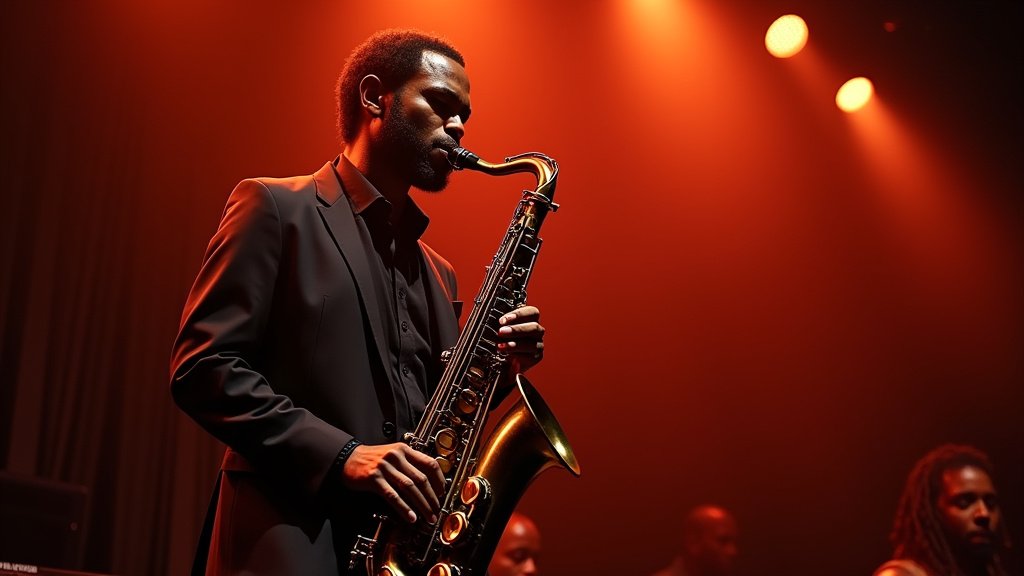Apple TV+’s The Changeling emerges as a fascinating, but often frustrating adaptation of Victor LaValle’s novel. Starring LaKeith Stanfield and Clark Backo, this 2023 series combines dark fantasy, horror, and social commentary into a nightmarish fairy tale that explores parenthood, trauma, and folklore. But for all its ambition, the show leaves much to be desired. Let’s dig into what makes The Changeling both a hypnotic ride and a cautionary tale about overstuffed narratives.
Overview: The Premise and Its Promise
The Changeling begins as a modern love story between Apollo Kagwa (LaKeith Stanfield) and Emma Valentine (Clark Backo), but quickly shifts into a psychological thriller with supernatural overtones. The narrative explores Apollo’s search for Emma after a series of tragic and eerie events revolving around their newborn child, Brian. When Emma begins to exhibit signs of postpartum depression—convinced that their baby isn’t really her child—what could have been a standard domestic drama soon spirals into a dark and twisting fairy tale about loss, paranoia, and obsession.
Adapted by Kelly Marcel, the show promises a multi-layered narrative that blends folklore, magical realism, and horror elements. The show’s central conceit—a mother’s descent into madness and a father’s harrowing search for his missing family—brings compelling psychological tension, while also tackling profound questions about parenthood, identity, and the dangers lurking beneath the surface of seemingly mundane lives.
Performances: LaKeith Stanfield Shines, But the Script Falters
If there’s one constant that elevates The Changeling, it’s the performances. LaKeith Stanfield brings a haunting vulnerability to Apollo Kagwa, capturing the depths of a father’s desperation as he searches for his wife and child. Stanfield’s trademark ability to convey emotional worlds through subtle facial expressions—his wide, searching eyes often doing most of the work—adds layers to a character who, in lesser hands, could have become one-dimensional. His portrayal of Apollo’s journey from joy to fear and sorrow is riveting and emotional.
Clark Backo as Emma Valentine also delivers an intense and disturbing performance, especially as her character begins to unravel under the weight of motherhood and supernatural dread. Her physical transformation, with exhausted eyes and frazzled hair, speaks to the emotional horror her character faces. Emma’s journey from a seemingly happy mother to a woman on the brink of despair feels tragically real and chilling.
However, the performances often suffer from inconsistent writing. The show tends to weave between realistic depictions of trauma and supernatural elements without giving either enough room to breathe. For every quiet, heartbreaking moment, there’s an awkward, metaphor-heavy dialogue that pulls you out of the story. These jarring transitions weaken what could have been profound emotional beats, leaving viewers oscillating between immersion and frustration.
Storytelling: Bold Ambition, Uneven Execution
The Changeling is undeniably ambitious. It wants to explore motherhood, folklore, family dynamics, and societal ills all at once. On paper, this sounds intriguing—a dark fairy tale that delves into the psychological horrors of parenthood while also exploring deep-rooted cultural myths. The show tackles timeless questions: Can fear and anxiety override parental instincts? How much of our fate is shaped by the choices of others? And is free will truly an illusion?
The problem is, The Changeling bites off more than it can chew. The series suffers from “streamer bloat,” with episodes that meander, introducing subplots and characters that feel tangential to the main storyline. Despite its eight-episode length, the pacing is off—episodes oscillate between drawn-out contemplative scenes and rushed, confusing action sequences. The final episode, clocking in at just 29 minutes, feels especially incomplete and rushed, as if the writers ran out of time. The decision to leave the narrative unresolved for a possible second season is a gamble, one that may alienate viewers expecting closure.
The show also suffers from its non-linear structure. While the parallel storytelling between Apollo and Emma’s childhood traumas and their adult lives provides context, it often interrupts the flow of the present-day story, leaving the viewer unmoored. Themes are introduced—such as the influence of social media, cultural folklore, and the immigrant experience—but many remain underdeveloped. As a result, what could have been a richly layered narrative instead feels like a disjointed collection of intriguing ideas.
Cinematography and Direction: Moments of Brilliance
Visually, The Changeling excels. Its dreamlike atmosphere is heightened by Melina Matsoukas’ direction, which blends urban realism with the otherworldly. The eerie, shadowy streets of New York, juxtaposed with brief, fantastical imagery, create an unsettling mood that keeps viewers on edge. Matsoukas uses framing and color palettes to reflect the emotional states of the characters, particularly during Emma’s descent into madness. The show’s use of close-ups—especially on Stanfield’s and Backo’s faces—emphasizes the psychological horror at play, making the characters’ internal struggles feel palpable.
However, this aesthetic brilliance isn’t enough to save the series from its narrative shortcomings. The editing, in particular, doesn’t always serve the story well. Certain sequences feel fragmented, disrupting the tension that could have been built with tighter, more coherent editing choices.
Themes: The Dark Side of Parenthood and Folklore
At its core, The Changeling taps into primal fears about parenthood and the fragility of family bonds. The fear of losing a child—whether to death, madness, or supernatural forces—runs through the show like a chilling undercurrent. The show also touches on the impact of postpartum depression, an issue rarely explored in mainstream media, but its approach feels uneven. Emma’s storyline is initially compelling, but her character is soon reduced to a plot device rather than a fully fleshed-out exploration of motherhood’s mental toll.
The show’s title, The Changeling, refers to the ancient folklore about fairies who would steal human children and replace them with supernatural imposters. This metaphor is effectively used to explore Emma’s disconnection from her own child, but it’s stretched thin as the series progresses. There are hints that her fears about Brian not being her real baby might not be entirely unfounded, but the series never fully commits to a single interpretation—leaving viewers in a frustrating limbo.
The Verdict: A Mixed Bag of Bold Ideas and Frustrating Execution
In the end, The Changeling is a show brimming with potential, but it falters under the weight of its own ambition. While it offers brilliant performances, haunting visuals, and some genuinely thought-provoking moments, it suffers from uneven pacing, underdeveloped subplots, and a finale that leaves too many questions unanswered. It’s the kind of show that feels like it could have been a masterpiece with tighter storytelling and more focused direction.
If you’re a fan of psychological horror and dark fairy tales—and don’t mind sitting through slow burns with unresolved endings—The Changeling might be worth your time. However, if you prefer your horror with a bit more structure and resolution, you may find yourself disappointed.
Pros:
- Stellar performances from LaKeith Stanfield and Clark Backo
- Haunting visual atmosphere
- Bold exploration of parenthood, trauma, and folklore
Cons:
- Uneven pacing and incomplete narrative
- Underdeveloped subplots and themes
- Rushed and unsatisfying season finale




